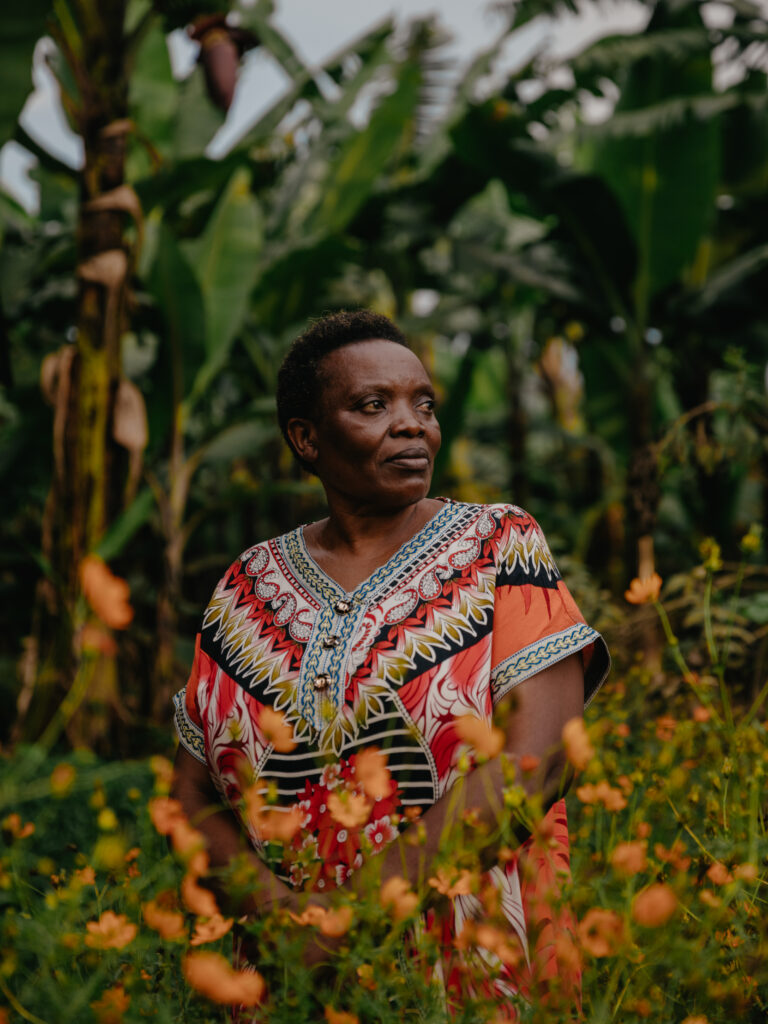
Peace activist Liberata Buratwa poses for a portrait in her garden. Hugh Kinsella Cunningham, Rutshuru, Rutshuru Territory, North Kivu Province, DRC, May 31st 2022.
Women’s activism, women’s impact
As conflict spirals out of control across multiple provinces in the DRC, peace activists like Liberata Buratwa are some of the only individuals working to protect their communities from the worst of the violence. Liberata, with 20 years of experience, is one of the few people in the province with the social cachet to directly engage with the power of the military hierarchy.
“To fix issues here, the options can be political, or military, where they will fight and say may the best person win; as a mother I always support dialogue in view of the horrors of war suffered by the inhabitants of the region here”, explains Liberata.
“I have been working for peace since I was very young”, she says. In 2008, at the height of a spate of massacres, Liberata led a delegation of women to meet Laurent Nkunda, the leader of CNDP. “We told him, my son, rebellion will lead you nowhere, the bush is for the animals, not for the people”.
A few months later, the CNDP threatened to attack Goma on Christmas night, causing mass panic in the city. Buratwa and her colleague, Edoxie Nziavake, headed once again into the forest to plead for the population of Goma to be spared.
“It was calm that night,” recalled Nziavake. “They kept their promise.”
The women’s audacious visits opened an unprecedented channel of communication between the rebels and the government which, combined with international pressure, culminated with the 2009 Ihusi Peace Agreement. While that truce was short lived—a rebel group known as M23 contested the accord—it provided a blueprint for women’s strategies.
The women successfully ventured into rebel territory and were heard by the commanders, says activist Gogo Kavira, because they strategically presented themselves as mothers. Men, soldiers, and politicians are likely to be killed if they approach rebels, she explains. But “when it’s your mother who comes, or the lady from your neighborhood, or your girlfriend’s mother, men cannot refuse to listen.”
“Women speak with their heart,” Kavira says with a smile. “They are there to help, not judge.”
The testimony above was gathered by Camille Maubert and Sifa Bahati: Bahati, S., Maubert, C. & Kinsella Cunningham, H. (2022) ‘These women are bringing some peace to war-stricken Congo’, https://www.nationalgeographic.com/culture/article/these-women-are-bringing-some-peace-to-war-stricken-congo.